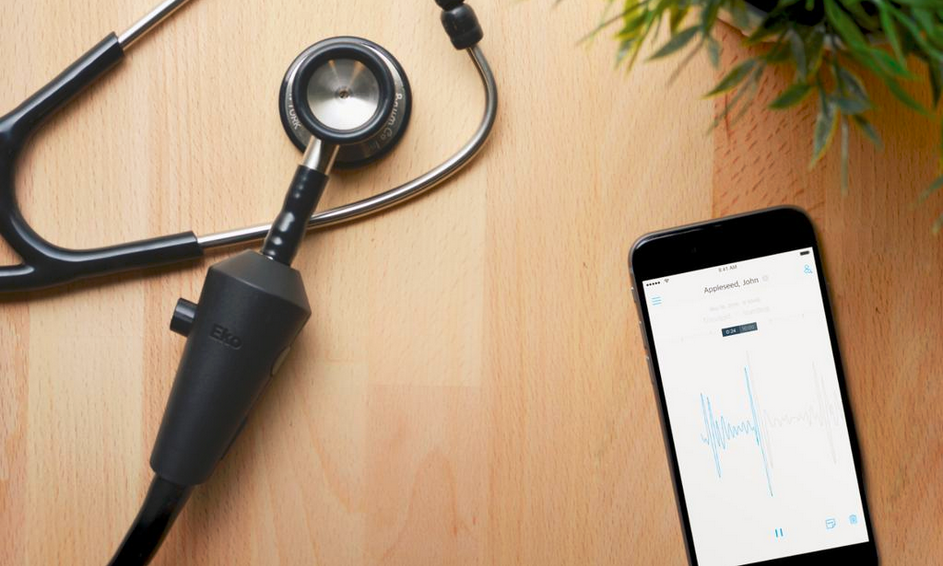
Eko and Mayo Clinic collaborate on a machine learning-based algorithm to help physicians better screen for potentially dangerous heart diseases.
Eko, creators of a heart and lung monitoring platform that combines non-invasive cardiac sensors with machine learning, has announced a collaboration with Mayo Clinic to develop and commercialize a machine learning-based algorithm that screens patients for the presence of a low ejection fraction – a weak heart pump. The collaborative effort combines Mayo’s cardiovascular database containing millions of ECGs and healthcare screenings – with Eko’s smart stethoscope and machine-learning algorithm and software platform.
How It Works
This allows ANY doctor to seamlessly tap the knowledge of an experienced cardiologist to determine if a weak heart pump is present simply by putting a stethoscope on a person’s chest for a few seconds. With this algorithm, Eko can help screen patients in seconds in the doctor’s office. Because the Eko tool can be used by any healthcare provider, it may detect heart function abnormalities earlier and in patients who might not otherwise be screened for heart disease.
The technology leverages the Mayo Clinic’s vast cardiovascular database and their expertise in medical AI and heart disease screening and combines it with Eko’s cardiac monitoring platform. Traditionally, ejection fraction is measured by imaging techniques such as echocardiography, which is a powerful but expensive and time-consuming test that is less accessible to most people in the U.S. and around the world than a doctor with a stethoscope.
“With this collaboration, we hope to transform the stethoscope in the pocket of every physician and nurse from a hand tool to a power tool,” said Paul Friedman, M.D., Chair of Cardiovascular Medicine at Mayo Clinic in Rochester, MN. “The community practitioner performing high school sports physicals and the surgeon about to operate may be able to seamlessly tap the
knowledge of an experienced cardiologist to determine if a weak heart pump is present simply by putting a stethoscope on a person’s chest for a few seconds.”
Eko hopes to gain FDA clearance approval for the technology after running clinical studies with Mayo Clinic.
